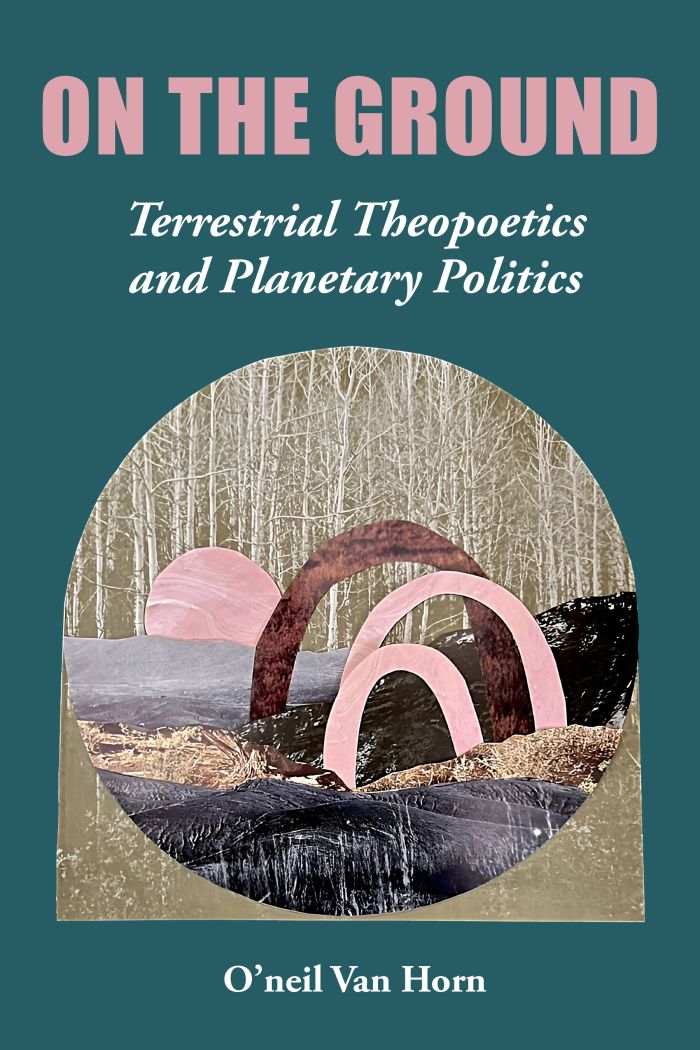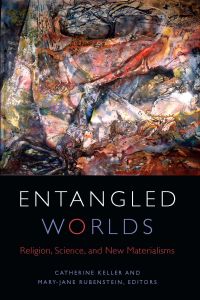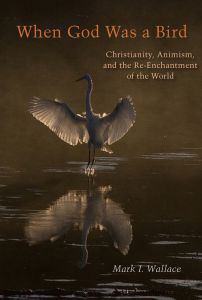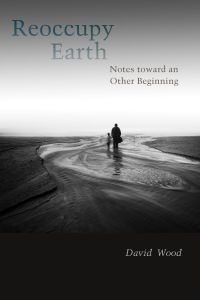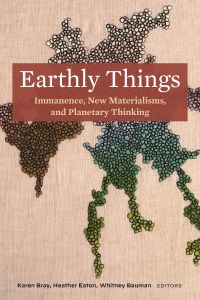On the Ground
Terrestrial Theopoetics and Planetary Politics

This book can be opened with

A bold, theoretical, and pragmatic book that looks to soil as a symbol for constructive possibilities for hope and planetary political action in the Anthropocene.
Climate change is here. Its ravaging effects will upend our interconnected ecosystems, and yet those effects will play out disproportionately among the planet’s nearly 8 billion human inhabitants. On the Ground explores how one might account for the many paradoxical tensions posed by the Anthropocene: tensions between planetarity and particularity, connectivity and contextuality, entanglement and exclusion. Using the philosophical and theological idea of “ground,” Van Horn argues that ground—when read as earth-ground, as soil—offers a symbol for conceiving of the effects of climate change as collective and yet located, as communal and yet differential. In so doing, he offers critical interventions on theorizations of hope and political action amid the crises of climate change.
Drawing on soil science, theopoetics, feminist ethics, poststructuralism, process philosophy, and more, On the Ground asks: In the face of global climate catastrophe, how might one theorize this calamitous experience as shared and yet particular, as interconnected and yet contextual? Might there be a way to conceptualize our interconnected experiences without erasing critical constitutive differences, particularly of social and ecological location? How might these conceptual interventions catalyze pluralistic, anti-racist planetary politics amid the Anthropocene? In short, the book addresses these queries: What philosophical and theological concepts can soil create? How might soil inspire and help re-imagine forms of planetary politics in the midst of climate change? On the Ground thus roots us in a robust theoretical symbol in the hopes of producing and proliferating intersectional responses to climate change.
While life on Earth feels increasingly groundless and uprooted, O’neil Van Horn gives us grounds for hope. Philosophical and theological grounds for thinking, feeling, and acting are brought down to Earth, to the grounds of soils and seeds. Creatively composing and composting the varieties of terrestrial existence, these grounds expose a dark hope, opening new poetic and political possibilities amid ongoing uncertainty, suffering, and lament.—Sam Mickey, Research Associate, Yale Forum on Religion and Ecology
In On the Ground, O’neil Van Horn calls us back to the humus of of our humanity and humility: to the evolving, entangled community of living and decomposing bodies that make up the soil of our earthly grounds and our own bodies. From these entangled earthy places, we might begin to articulate visions of planetary politics that keep us focused on the bodies of the earth, and work from dark, earthly hopes toward different worlds in an emergent future that is not merely more of the same, but really yet to sprout forth.—Whitney Bauman, Professor of Religious Studies at Florida International University, and author of Religion and Ecology: Developing a Planetary Ethic
In a world alternately on fire and yet drowning in floodwater, Van Horn considers how caring for local habitats can cultivate hopefulness and well-being amid ecosystem collapse. In this brilliant study of the fecund metaphors of earth, ground, soil, matter and humus, a philosophy of planetary unity emerges that preserves the irreducible racial, economic and gender differences that previous philosophies have occluded. Borrowing from new agrarianism, terrestrial theopoetics, Afrofuturist ecology, process philosophy, and ecojustice principles, Van Horn in the end calls neither for techno-optimism nor apocalyptic despair but a cautious “dark hope” fertilized by local habitat restoration and bioregional coalition politics.—Mark I. Wallace, James Hormel Professor of Social Justice in the Department of Religion at Swarthmore College, and author of When God Was a Bird: Christianity, Animism, and the Re-Enchantment of the World
On the Ground is a thoughtful, conceptually dense punch of a book. The depth of engagement with challenging theorists is commendable. . . The articulation and cultivation of original, provocative, useful ideas is palpable.—H-Net Reviews
Introduction | 1
Interlude: The Differences of Our Soils, the Soils of Our Differences | 15
1. Planting: Ground Is Not Foundation | 18
Interlude: Poetics at the Edge | 42
2. Rooting: Terrestrial Theopoetics of and for the Planetary | 44
Interlude: Mountaintop Removal and the Impossibility of Hope | 62
3. Sprouting: Dark Hope in Undecidable Times | 67
Interlude: Seeds and the Subversive Act of Sowing | 96
4. Blooming: (De)Compositional Planetary Politics | 101
Conclusion | 125
Acknowledgments | 129
Notes | 131
Bibliography | 167
Index | 179

